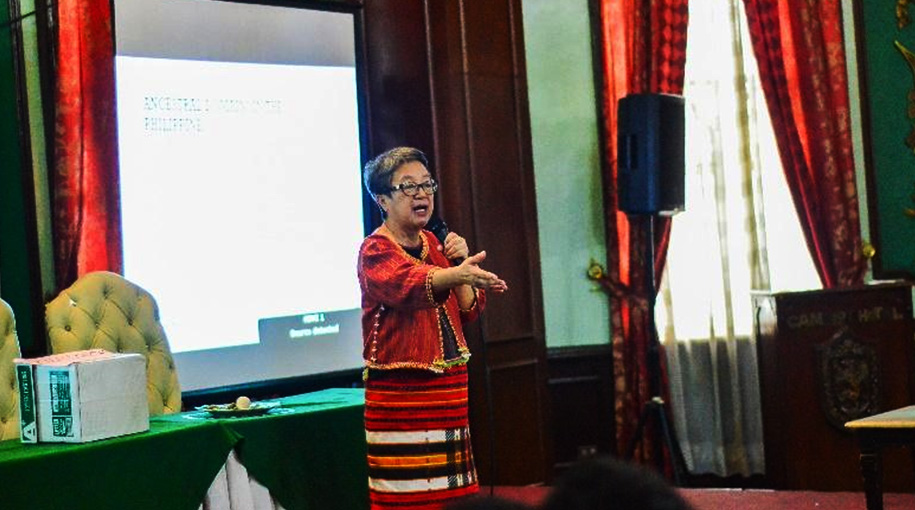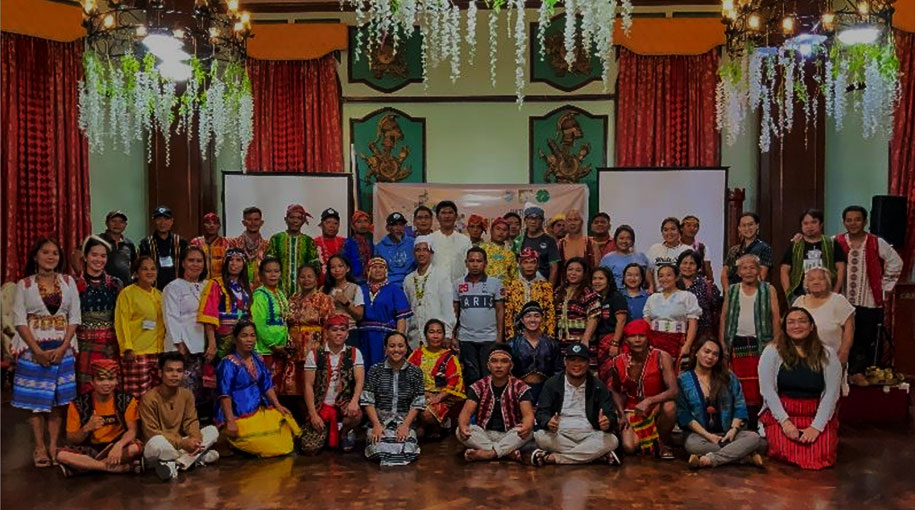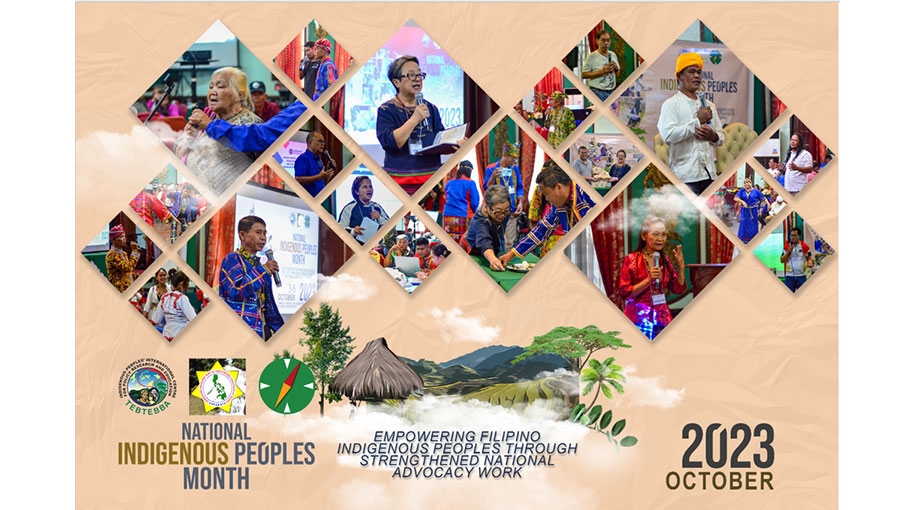In celebration of the National Indigenous Peoples Month, the Ugnayang Pambansa para sa Katutubong Kaalaman at Talino (UPAKAT) Inc. and the Indigenous Navigator (IN) initiative in the Philippines, both through Tebtebba, hosted a three-day event entitled “Empowering Filipino Indigenous Peoples through Strengthened National Advocacy Work” held at the Camelot Hotel, Diliman, Quezon City, Philippines on October 3–5, 2023.
The event's objective was to increase awareness and strengthen knowledge about the laws and policies that affect the lives of indigenous peoples and their communities. Its goal was to create an inclusive platform for conversations and exchanges with government agencies, allowing a better understanding of various topics such as the Non-Moro Indigenous Peoples (NMIP) Code in the Bangsamoro Autonomous Region of Muslim Mindanao (BARMM), the Cordillera Regional Autonomy and House Bill 3267, as well as the Indigenous Peoples (IP) Code of Arakan, North Cotabato.

In her opening remarks, Victoria Tauli-Corpuz, executive director of Tebtebba, stressed the need to understand the community's priorities for effective advocacy with government and local units. She highlighted the role of the National Commission on Indigenous Peoples (NCIP) in implementing the Indigenous Peoples Rights Act (IPRA) and stressed the need for dialogue with them. Tauli-Corpuz also underscored the concept of "intercultural dialogue", which involves understanding community and country situations. This understanding would assist government agencies in taking appropriate actions based on the priorities of indigenous peoples in their communities.
Various Ugnayang Pambansa para sa Katutubong Kaalaman at Talino (UPAKAT) Inc. members from Luzon and Mindanao attended the event. Representatives from the Cordillera Administrative Region included the Pidlisan Tribe Organization (PITO), Ganak da iLlicoy Inc. Other Luzon representatives were Nagkakaisang mga Tribu ng Palawan (NATRIPAL) and Samahan ng Katutubong Tagbanuang Tangdulanen sa Binga, Inc. (SAKATTABI).

Partners from the Bangsamoro Autonomous Region in Muslim Mindanao included the Erumanen ne Menuvu Kamal, Lambangian Peoples Organization (LPO), Timuay Justice and Governance (TJG), and Dulangan Manobo Tribal Justice and Self-Governance (DMTJSG).
Furthermore, partners from Mindanao (outside of BARMM) were the Manobo Lumadnong Panaghiusa sa Arakan (MALUPA), Kulamanen Menuvu Development Initiative (KMDI) Inc., Sarangani and Southern Davao Tagakaulo Ancestral Domain Association (SASDATAD), Panaghiusa Alang Sa Kaugalingnan Ug Kalingkawasan, Inc. (PASAKK), Limpong nang Mangkatadong sang Maragusan, Magpet Pusaka Impon Conservation Association of Don Panaca, Imamaling, Manobisa, Manobo and Amabel (MAGPICA DIMMA), and SILDAP Southeastern Mindanao, Inc.
Expected outcomes of the event included a deeper understanding of the NMIP Code, a more comprehensive grasp of the Cordillera Regional Autonomy and its related House Bill 3267, and an insight into the Arakan IP Code. Additionally, discussions of the United Nations Declaration of the Rights of Indigenous Peoples (UNDRIP), the Indigenous Peoples Rights Act (IPRA), and other laws and policy instruments about indigenous peoples were held.
The event facilitated a consolidation of challenges faced by communities as well as good and bad practices concerning indigenous peoples’ adaptation and mitigation of different issues on the ground. The gathering also provided an opportunity for indigenous peoples to make recommendations towards enhancing community-strengthening efforts to promote and preserve indigenous knowledge systems and practices and effectively engage in national advocacy work.


